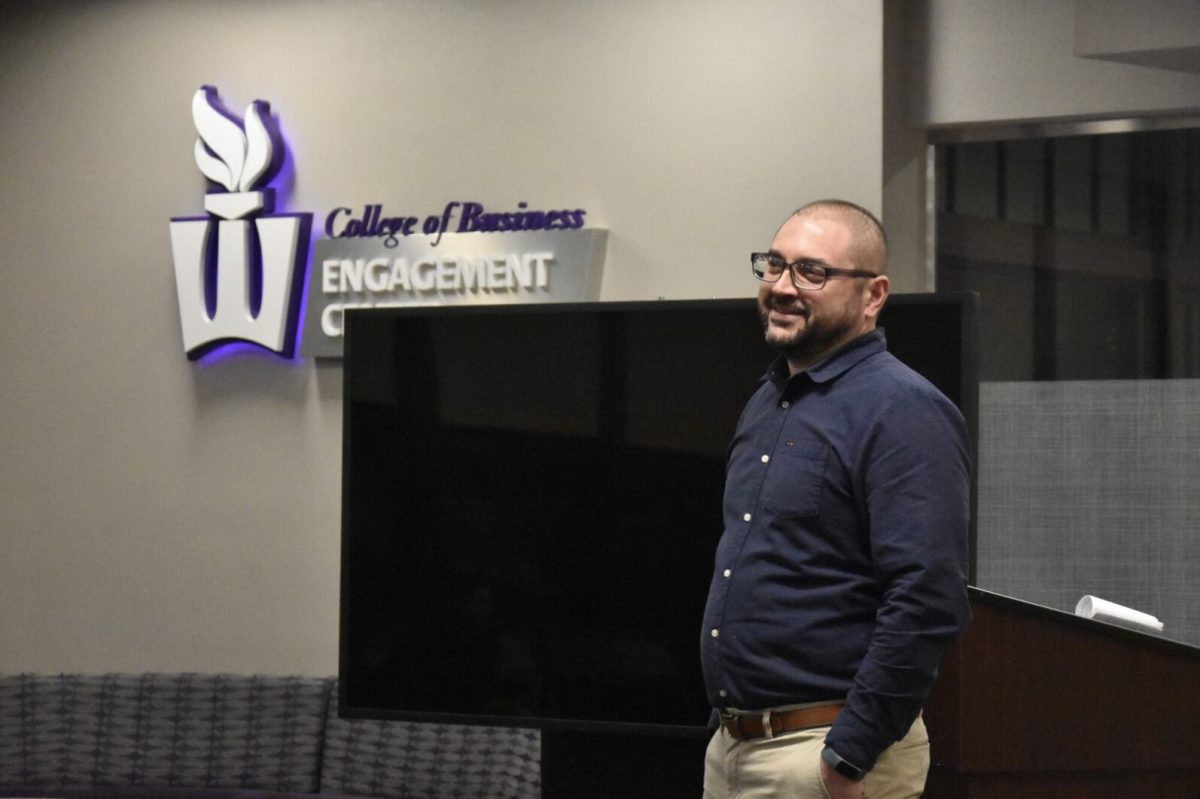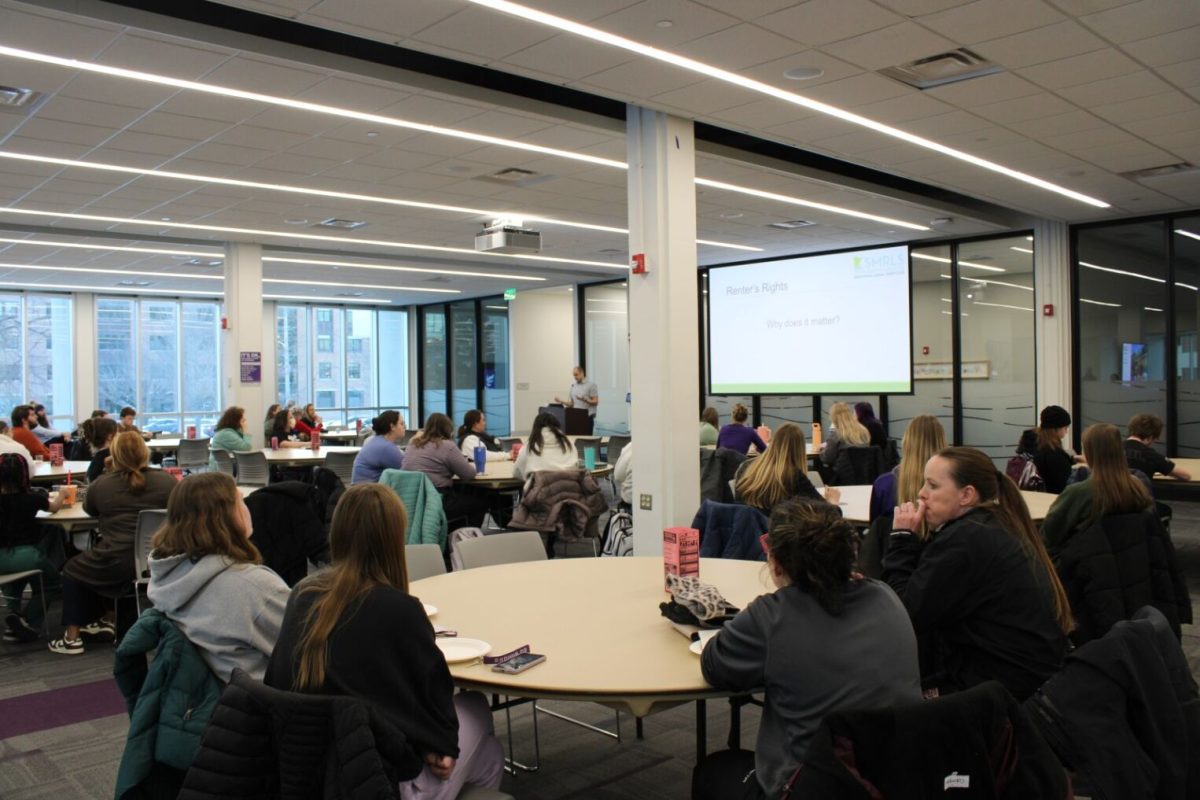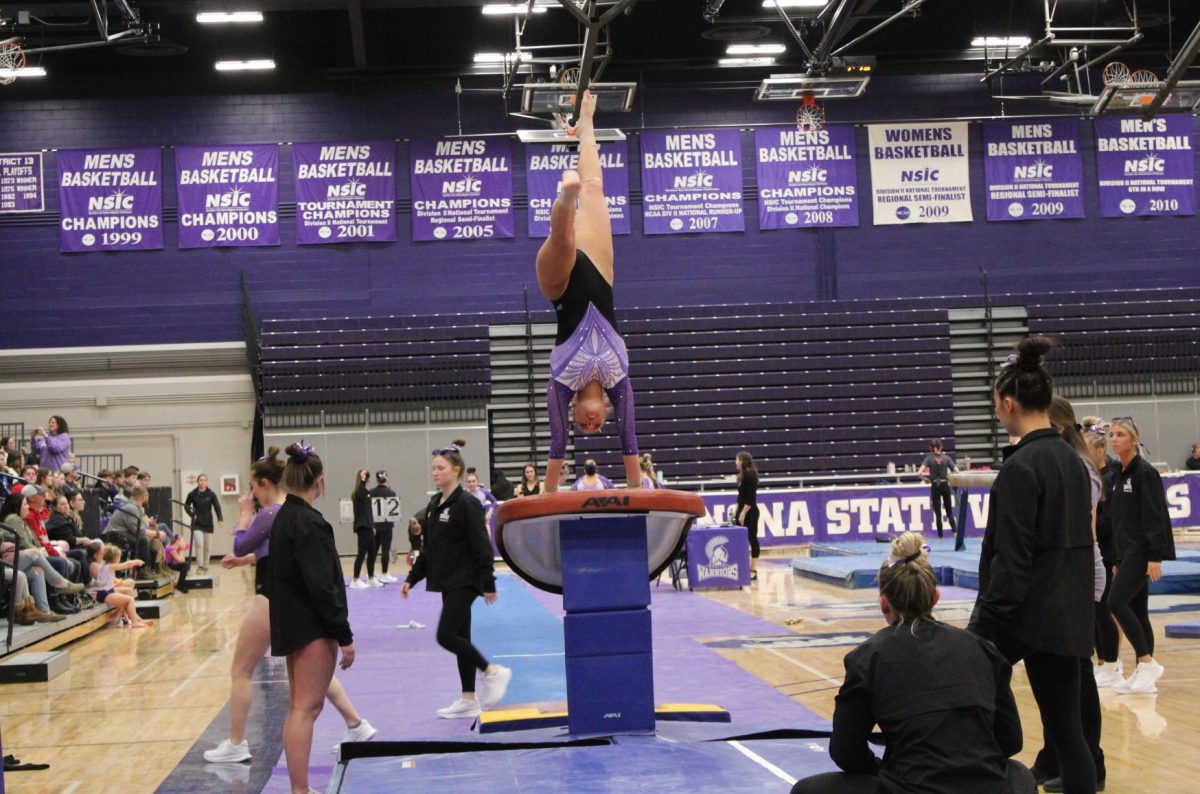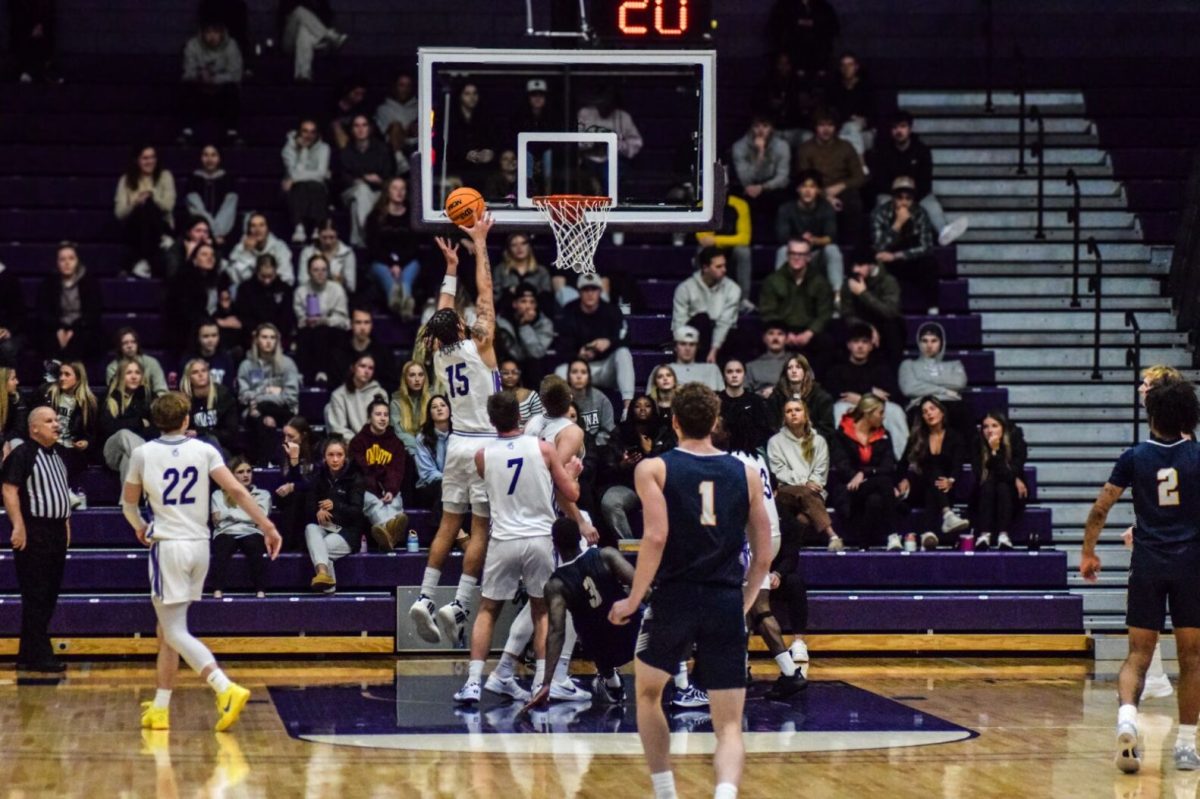Elizabeth Pulanco/Winonan
As a successful trial lawyer in Iowa, Ellen Krug was married with children, lived in a nice neighborhood and had a three-car garage. Although she was living a life of luxury, there was one thing she struggled with: living this life as a man.
On Tuesday, Oct. 20, Winona State University’s women’s, gender and sexuality studies department and the criminal justice department invited Krug to discuss not only what it means to be transgender, but also what it means to live life with authenticity.
Sophomore Karli Bly, who was attending the discussion for a women’s, gender and sexuality studies class, was eager to hear about Krug’s experiences.
“It is exciting to actually hear from a person and see them tell their story, rather than just read it online,” Bly said.
Throughout the discussion, Krug described living with authenticity as living as your true self.
“All of us should be able to enjoy an authentic life, no matter what our situation is,” Krug said.
When Krug first started her transitioning process, she realized that she had experienced many barriers that prevented her from living authentically, one of which was fear.
As a child, Krug would often stay up until the late hours of the night waiting for her father to come home from work, unsure if he would return because of his alcohol problem.
“I would sit in front of the window or lay in my bed until 3 o’clock in the morning waiting to hear the garage door open,” Krug said.
The constant waiting for her father caused Krug to become fearful about her future and increased her fear of being alone.
In high school, Krug fell in love with the girl next door. As their relationship evolved, the two made plans for their life together; but all these plans contained the idea that Krug would still be living her life as a man.
As Krug became wrapped up in her married life, she realized in order to stay married she had to keep her gender identity struggles to herself.
“I was so terrified of being alone,” Krug said. “This was why I held on to being a man for so long.”
As a way of confronting her gender identity struggles, Krug decided to go into therapy.
While in therapy, Krug began to deal with denial, another barrier that prevented her from living her life authentically.
“I would tell my therapists that I wasn’t there to find out who I was—I just wanted to stay married,” Krug said.
Unfortunately for Krug, the therapists did not tell her what she wanted to hear.
“Almost every therapist I went to told me that if I didn’t leave my wife, I would kill myself,” Krug said.
After seeing therapist after therapist, Krug was still in denial and was trying to fight to stay married.
Krug’s denial continued to hold her back, until the events of 9/11 caused her to re-evaluate her situation.
“The night of the attacks I thought about death and I realized that if I had died, I would have died a coward,” Krug said. “I was done fighting and denying myself.”
Shortly after these events, Krug came out to her wife and children. It took her three years to disengage from her wife. After their divorce they continued to co-parent their two children.
For Krug, her transitioning experience is her own and does not reflect the experience of other transgender individuals.
“I had the ability to pick myself up and start over,” Krug said. “Many other transgender people do not have this option.”
In 2009, Krug became the first attorney in Iowa to participate in jury trials as separate genders. While Krug was transitioning, she received support from her fellow attorneys and judges she had worked with over the years.
In 2010, Krug relocated to the Twin Cities where she worked as a contributor for several LGBTQ publications. A year later she started speaking about LGBTQ issues at several different venues.
In 2013, she published her first book, “Getting to Ellen: A Memoir about Love, Honesty and Gender Change.”
Earlier this year, she spoke to people in Rochester about issues facing the transgender community. This is where former police officer and member of the criminal justice department Jim Parlow first heard Krug’s story.
Parlow invited Krug to speak with the criminal justice department to help educate them about the transgender community.
“Having been a former police officer and now having a transgender daughter, it is of the utmost importance that I feel I can train law enforcement officers to keep my daughter safe,” Parlow said.
Parlow takes it upon himself to educate law enforcement about transgender issues as well.
A study done by the National Center for Transgender Equality and the National Gay and Lesbian Task Force states: “46 percent of all transgender and gender non – conforming people are ‘uncomfortable’ seeking police help and 22 percent of those who interacted with police reported being harassed by police officers due to bias.”
According to women’s, gender and sexuality studies professor Tamara Berg, these percentages increase when considering transgender people of color.
Parlow’s discussions with police officers about the issues facing law enforcement and the transgender community have been getting a positive response.
“When the law enforcement officers attend the training about transgender community, they say that more law officers need to be a part of them,” Parlow said.
While Krug continues to speak about issues facing the transgender community, she has returned to her roots of why she became involved as a lawyer.
As a child in the 1960s, Krug heard the words of Dr. Martin Luther King Jr. and Robert F. Kennedy and decided she wanted to become a lawyer and make a difference.
In 2011, Krug became the executive director of Call for Justice, a nonprofit that connects low-income individuals with legal resources.
With her work, Krug spends time discussing compassion and kindness. She also discussed the importance of educating yourself and staying curious.
“All of us want to do the right things but we get lost in the details about concerns about offending someone or saying the wrong things,” Krug said. “This causes us to put up barriers.”
Like the men that inspired her to make an impact, Krug believes that everyone has an obligation to make the world a better place. By speaking about living authentically and her journey of finding authenticity, Krug has shown she is more than happy to fulfill this obligation.








































